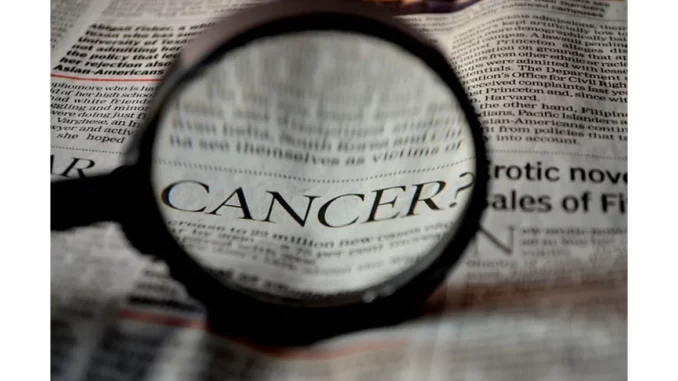
The realm of cancer research and treatment is experiencing a profound transformation, propelled by a wave of technological advancements that promise to reshape our approach to this complex disease. These innovations are not merely enhancing our understanding of cancer but are also pioneering new methods for detection and treatment. From the precision of gene editing technologies like CRISPR to the analytical prowess of artificial intelligence, as well as the expanded reach of telehealth and the sophistication of modern imaging techniques, each innovation plays a pivotal role in revolutionising cancer care.
One of the most groundbreaking developments in recent years is CRISPR, a sophisticated gene-editing tool that allows scientists to modify the genetic makeup of living cells with unparalleled accuracy. Operating like molecular scissors, CRISPR can excise, insert, or alter specific DNA sequences, thereby opening new pathways for cancer treatment. By targeting and modifying genes involved in cancer development, CRISPR holds the potential to correct genetic mutations that lead to cancer. The commencement of clinical trials in 2019 for CRISPR-based cancer immunotherapy marked a significant milestone. However, the promise of CRISPR is tempered by ethical considerations and technical challenges such as off-target effects, which need to be meticulously addressed to ensure its safe application in cancer therapy.
Artificial intelligence (AI) is another technological marvel making significant inroads into cancer research and treatment. AI’s ability to analyse vast datasets, discern patterns, and predict outcomes is revolutionising patient care. AI technologies, for instance, facilitate the creation of “digital twins”—virtual models of patients that enable doctors to simulate and evaluate various treatment scenarios. These digital doppelgangers enhance the personalisation of treatment strategies, tailoring interventions such as radiation dosages to the needs of individual patients. Moreover, AI aids in the analysis of medical imaging and electronic health records, improving the accuracy of diagnoses and the efficacy of treatment plans. The integration of AI into cancer care represents a leap towards a more personalised medicine approach, offering the potential to significantly enhance patient outcomes.
The advent of the COVID-19 pandemic accelerated the adoption of telehealth, cementing its place as an essential component of cancer care. Telehealth facilitates the remote delivery of cancer treatment and the conduct of clinical trials, thereby expanding access to healthcare services, particularly for patients in rural or underserved regions. Patients can engage in virtual consultations, follow-up appointments, and even receive in-home chemotherapy, making cancer care more accessible and convenient. While telehealth offers numerous advantages, such as reduced infection risk and travel burden, it also presents challenges, including ensuring equitable access for all patients and maintaining high standards of care.
In the realm of imaging technologies, advancements such as cryo-electron microscopy (cryo-EM) are revolutionising the early detection and diagnosis of cancer. Cryo-EM provides high-resolution images of molecular structures, enabling researchers to study cancer cells with remarkable detail. This technology has already facilitated significant discoveries, such as elucidating the interactions between drugs and cancer cells, which can lead to the development of more effective treatments. Complementary imaging modalities, including 3-D mammography and low-dose CT scans, further enhance the early detection of various cancers, improving diagnostic precision and patient outcomes. These advanced imaging techniques are indispensable tools in the timely and accurate diagnosis of cancer.
The Infinium Assay, a genotyping technology, also contributes significantly to our understanding of cancer by mapping genetic variations associated with the disease. By analysing millions of single nucleotide polymorphisms (SNPs), the assay offers insights into genes linked to cancer risk and progression. This depth of genetic understanding is crucial for identifying individuals with a predisposition to cancer, paving the way for personalised approaches to prevention and treatment. As our knowledge of cancer genetics continues to expand, technologies like the Infinium Assay will remain vital instruments in the ongoing battle against cancer.
Additionally, the field of robotic surgery is making strides in cancer treatment, offering precision and minimally invasive options for tumour removal. Robotic systems, operated by skilled surgeons, enable more accurate and delicate procedures, resulting in reduced recovery times and improved surgical outcomes. For instance, robotic-assisted prostatectomies involve smaller incisions, less blood loss, and quicker recovery compared to traditional surgical methods. As robotic technology continues to advance, its application in cancer surgery is likely to broaden, further enhancing patient care.
Collectively, these technological advancements are paving the way for a new era in cancer research and treatment. With the potential to improve diagnostic accuracy, personalise treatment plans, and ultimately increase survival rates, these innovations offer a beacon of hope for millions of individuals affected by cancer. As researchers continue to explore and refine these technologies, the future of cancer care appears increasingly promising, poised to transform the landscape of a disease that has long challenged humanity.


Be the first to comment